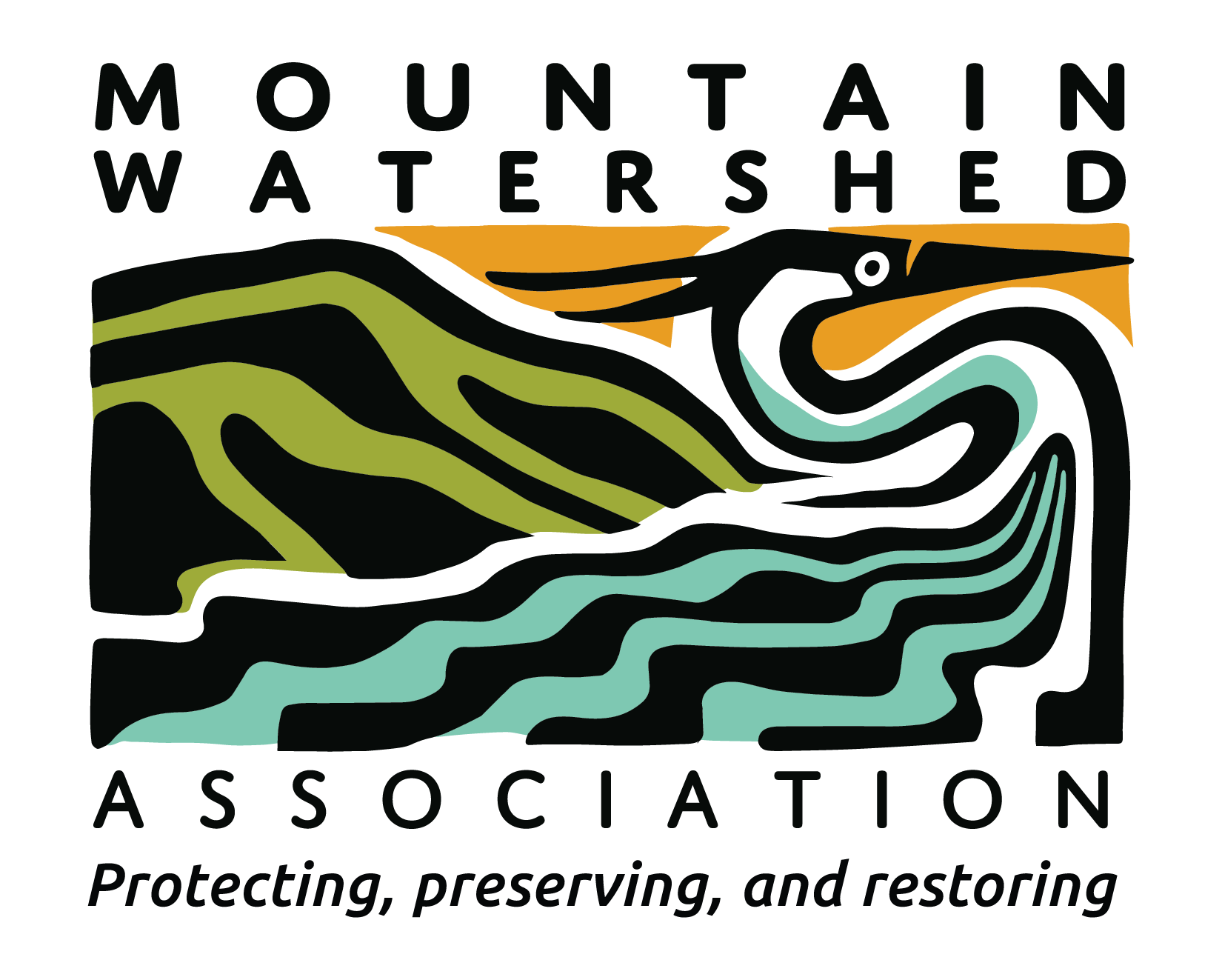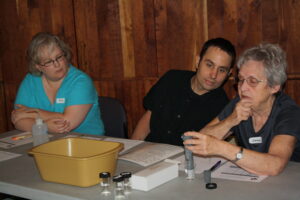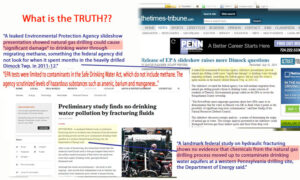People volunteering with our Marcellus Citizen Stewardship Project (MCSP) are ‘ground truth’ sleuths…or aspiring ones anyway. What is ground truth? It’s a phrase used to describe “the reality of a tactical situation as opposed to what intelligence reports and mission plans assert the reality to be.” Thank you, Wikipedia. Ground truthing in the Marcellus shale fields refers to gathering facts from the front line, diligent collection of first-hand accounts, analysis of water test results and other Department of Environmental Protection (DEP) files, and bearing witness to the devastating impacts of shale industrialization.
If you’re not living with shale gas operations on a daily basis–or bearing the brunt of the burden from this industrialization— taking action to learn and participate in the democratic process just doesn’t seem necessary- after all, the industry says drilling is safe. For this reason MWA is committed to continually working with community members and offering opportunities for education and skills training through the MCSP.
Through the Marcellus Citizen Stewardship Project we provide resource and training and serve as a watch dog. We inform the public and hold regulators, industry and government officials accountable for not doing their due diligence.
Case in point; regulatory agencies releasing reports on the impacts, or perceived lack-there-of, from natural gas industrialization and later retracting findings in an additional reports that release the industry from responsibility. This behavior is made evident in recent news of improper handling of water contamination cases in Dimock, PA by the Environmental Protection Agency (EPA).
This sort of distribution of incongruent information makes ground sleuthing even more important.
Through visual assessment, water monitoring, and other citizen surveillance measures residents can monitor gas operations and report to agencies when pollution is suspected, or when “best practices” are not being used. This can cut down on the biased and less than accurate information the general populace receives.
To arrange for a water quality monitoring training in your community or for more information on our MCSP please contact our community organizer, Kathryn Hilton.



